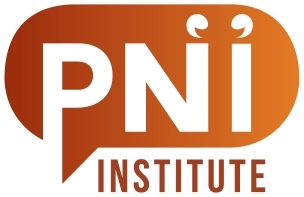Our September call was our first “PNI Reading Club” call. We all read some papers in the field of action research and talked about how PNI relates to it. These are some of the things we discussed:
- The great extent to which PNI is related to action research, and how it could have more accurately been called “Narrative Action Research” (since it is closer to AR than to its other parent, Narrative Inquiry) – though that got us into a discussion about …
- The difference between inquiry and research. Which is more respected, more honest, more effective? Depends on who you talk to about what aspect of things.
- The differences between researchers, the researched, and the researched for – how powerful that distinction is, how it drives a lot of what PNI stands on, and how it makes PNI both more powerful and more challenging than non-participatory research (or inquiry).
- How we present PNI to people – Is it conversation? Is it analysis? Where does it fall between these extremes, and how do we find the right description?
- Where there is room for more participation in PNI and where there is less room. In what phases more participation (and reliance on participation) is enabling and in what phases it is difficult to rely on.
- Two prevalent ways of seeing action research: (a) as a subset of social science to be used when special circumstances call for it, and (b) as what all of social science really is to those who are being honest about it. How PNI feels about that dichotomy (mixed feelings).
- The status and respect given to applied versus pure science, and how that has impacted perceptions of action research, and PNI.
- The effect of “narrowism” on action research and PNI – meaning, projects becoming irrelevant or turning into “lip service” because of difficulty sharing things (due to privacy concerns), and also people being afraid to address deep issues. When PNI is deep, it’s uncertain; when it’s certain it’s surface-level. How to balance these things? How to talk about balancing these things?
- Is an ethics committee a judgment committee or a facilitating committee?
- Are we working on something that could improve the world? Are we working on something that can be monetized? How are these to be balanced? The pressure to monetize distorts but cannot be avoided if one is to keep doing the work.
- What are the extrinsic factors that are preventing us from doing what would make the world better in our field of practice? Money, status, respect, being taken seriously, being paid attention to? We don’t want to do “feel good” research that seems to meet needs but is shallow and doesn’t really help anyone. Especially when it comes to story work, being heard isn’t the same as being helped to find a solution. But getting to “the good stuff” in PNI is uncertain and difficult, and few are willing or able to get all the way there. How can we decrease the slope of the learning curve so more people are willing to try PNI – without weakening its effectiveness?
Fascinating if difficult questions. Thanks, everyone. I for one continue to be inspired, challenged, and energized by these excellent discussions.

